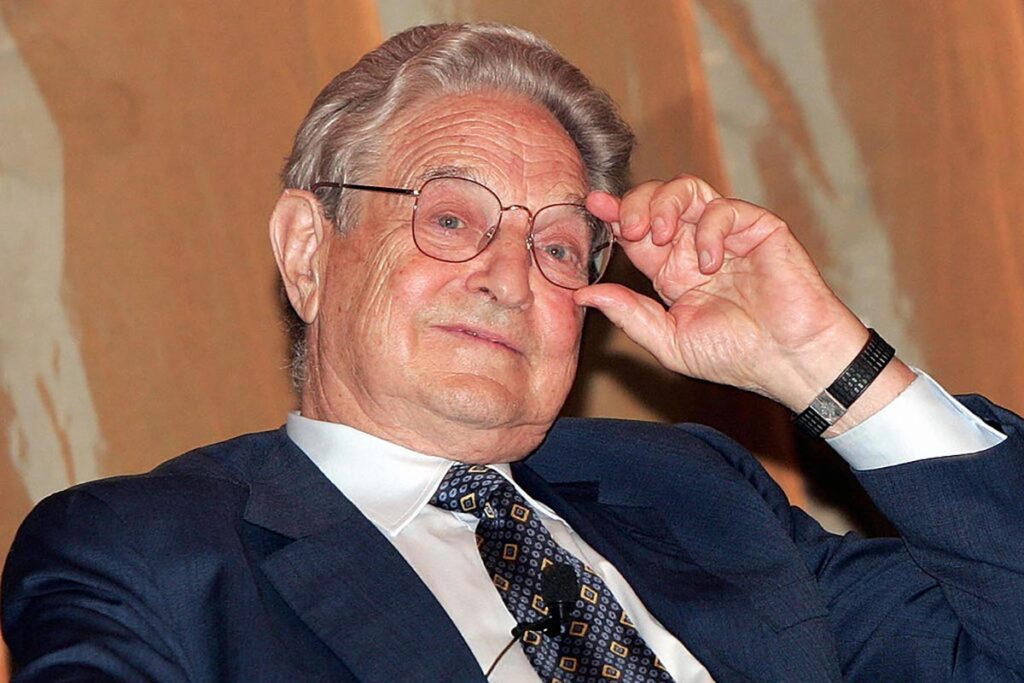We’re curious…
Elon Musk, the CEO of Tesla and current owner of Twitter, is no stranger to controversy. Recently, a series of tweets from Musk sparked a heated debate about whether his comments were rooted in antisemitism.
In a tweet on May 15, Musk compared George Soros — a Jewish philanthropist who is often at the center of antisemitic conspiracy theories — and the Marvel supervillain Magneto.
For those who are not Marvel superfans, Magneto is a villain who seeks to conquer the world and replace humanity with mutants.
It’s an odd comparison, to say the least. However, the fictional character does share some biographical similarities with real-life Soros, as both are Jewish and survived the Holocaust.
Soros reminds me of Magneto
— Elon Musk (@elonmusk) May 16, 2023
Musk later “apologized” for the accusation, adding sarcastically, “it was really unfair to Magneto.”
It was really unfair to Magneto
— Elon Musk (@elonmusk) May 17, 2023
When one Twitter user pushed back on Musk’s comparison — noting that Soros “gets attacked nonstop for his good intentions which some Americans think are bad merely because they disagree with his political affiliations” — Musk replied:
“You assume they are good intentions. They are not. He wants to erode the very fabric of civilization. Soros hates humanity.”
You assume they are good intentions. They are not. He wants to erode the very fabric of civilization. Soros hates humanity.
— Elon Musk (@elonmusk) May 16, 2023
His provocative tweets prompted a full range of responses from the Jewish world, with some leaders and organizations calling him out for antisemitism and others praising him for speaking out against a figure with controversial contributions.
So, this week we wanted to ask: was Musk’s tweet a legitimate critique of a controversial figure or antisemitic? Where does the line fall between legitimate criticism and antisemitism?
Who is George Soros? A controversial legacy
George Soros, a Hungarian-born billionaire investor and philanthropist, is a contentious figure in the Jewish community and beyond. He has been the subject of antisemitic conspiracy theories throughout much of his career, especially as his wealth and influence have grown.
Born on August 12, 1930, in Budapest, Hungary, Soros survived the Holocaust and later immigrated to England in 1947, eventually settling in the United States. He began his financial career in the 1950s, making a name for himself as a hedge fund manager. Over the years, he became one of the most successful investors in history.

Within the Jewish community, some appreciate Soros’ philanthropic efforts, largely through his organization, Open Society Foundations. He has donated billions to causes such as promoting democracy, education, public health and social justice around the world.
On the other hand, some have criticized Soros for his stance on Israel, finding it incredibly problematic that he has funded organizations that attack Israel and Israeli policy.
“His Jewishness shouldn’t shield him from criticism,” former Harvard law professor Alan Dershowitz wrote in a Wall Street Journal op-ed. “No single person has done more to damage Israel’s standing in the world, especially among so-called progressives, than George Soros.”
Outside of the Jewish world, his political contributions to liberal causes have made him a target for right-wing extremists and conspiracists. Some have falsely claimed that he orchestrated the COVID-19 pandemic and the Black Lives Matter protests to destabilize the U.S. government.
Others accuse him of funding the “great replacement” of white Americans with immigrants and people of color. All of these claims lack substantive evidence and have been widely discredited.
In the antisemitic conspiracies against him, Soros is often depicted as a puppet master manipulating global events for his own personal gain. These theories evoke historical, antisemitic tropes of Jews “controlling” banks and exerting secret control over society.
For example, in May 2022, a Republican candidate for Minnesota’s secretary of state depicted him as a puppet master in her campaign video, suggesting that he secretly controls elections. In addition, in 2021, Fox News faced backlash for sharing a similar puppeteer cartoon.
Diversity of perspectives: Were Elon Musk’s tweets antisemitic?
Back to the controversial tweet. Many argued that while Musk didn’t explicitly espouse antisemitism, his comparison of Soros to a Jewish supervillain veered uncomfortably close to historical antisemitic tropes.
ADL CEO Jonathan Greenblatt expressed concern that Musk’s comments would embolden those who contrive anti-Jewish conspiracy theories “and have tried to attack Soros and Jewish communities as a result.”
Soros often is held up by the far-right, using antisemitic tropes, as the source of the world’s problems. To see @ElonMusk, regardless of his intent, feed this segment — comparing him to a Jewish supervillain, claiming Soros “hates humanity" — is not just distressing, it's… pic.twitter.com/ECAuYahSga
— Jonathan Greenblatt (@JGreenblattADL) May 16, 2023
US Special Envoy Deborah Lipstadt echoed this sentiment, highlighting the recurring use of classic antisemitic tropes in criticisms of Soros.
Irrespective of how one feels about George Soros’s politics or policies, it is entirely disingenuous to deny that many ad hominem attacks on him rely on classic antisemitic tropes and rhetoric. In bygone eras, the antisemites invoked the Rothschild family to advance their…
— Ambassador Deborah Lipstadt (@StateSEAS) May 19, 2023
On the other hand, some Jewish leaders agreed with Musk. Israeli Diaspora Affairs Minister Amichai Chikli defended Musk, tweeting:
“Criticism of Soros — who finances the most hostile organizations to the Jewish people and the state of Israel is anything but antisemitism, quite the opposite!”
In an interview with Yair Rosenberg of the Atlantic, Chikli elaborated on his position: “I don’t think that [Elon Musk] is an anti-Semite. You can also say that George Soros is doing huge damage, not just to the state of Israel, by promoting the deal with Iran, which I think is damaging for humanity.”
However, it appears the Foreign Ministry was divided on the issue, with a spokesperson also telling the Jerusalem Post that Musk’s tweet “smelled of antisemitism…[and] immediately brought a flood of antisemitic conspiracy theories.”
Alan Dershowitz, one of the most famous writers against antisemitism and anti-Zionism, also backed Musk, writing:
“Mr. Soros is an active participant in politics, and his Jewishness shouldn’t shield him from criticism…I agree with Mr. Musk that Mr. Soros’s acts contribute to fraying the ‘fabric of civilization.’”
What’s the difference between criticism and antisemitism?
So, was Musk’s tweet against Soros antisemitic or not? Where do we draw the line between legitimate criticism and antisemitism?
Criticism is important, especially for those in positions of power. We shouldn’t be crying wolf — or “antisemite” — on every critical comment against a Jew, because this could minimize the gravity of real, harmful antisemitic incidents.
At the same time, there is a difference between legitimate criticism and antisemitism. Legitimate criticism becomes problematic when it veers dangerously close to historical antisemitic tropes or blames an entire group for the actions of an individual belonging to that group.
The controversy also illustrates the saying: “With great power comes great responsibility.”
Words are powerful, especially when they’re coming from influential people. It’s critical to acknowledge the broader context and potential consequences of public figures’ comments.
For example, Musk’s tweet could prompt a range of interpretations. If his tweet is read as a critique based on Soros’ actions, it would likely be seen as valid criticism.
But if the tweet appears to target him based on his Jewish identity or perpetuates harmful stereotypes, it crosses the line into antisemitism.
Yair Rosenberg from the Atlantic put it this way:
“Criticizing George Soros is not inherently antisemitic…But Musk was not taking issue with a particular statement or position put forward by Soros; he was presenting him as an avatar of evil. He painted Soros as a literal comic-book villain.”
“It’s doubtful that Musk harbors personal animosity toward Jewish people. But…the arc of conspiracy is short and bends toward the Jews,” he added.
There’s a way to criticize and question leaders without generalizing entire groups of people or promoting harmful stereotypes. The world has a lot to learn.
